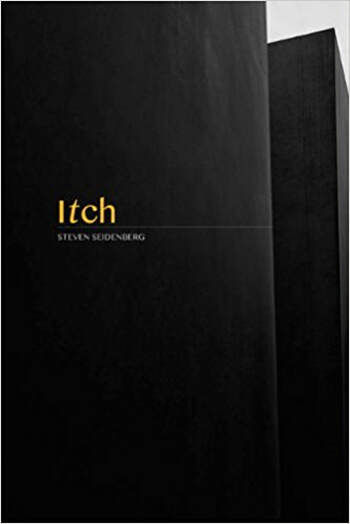|
Neither classifiable as fiction nor philosophy, Itch recounts its narrator's arousal to the possibility of narration, while dredging through the viscera of corporeal awareness to find succor in the prospect of the telling of the tale. Written in propositional aphorisms both sinuously dense and lyrically precise, Itch occupies a diegetic space somewhere between the austerity of Wittgenstein's Philosophical Investigations and the confessional interruptions of Stern's Tristram Shandy—philosophy with an unreliable narrator, fiction plotted from the compass of first premises to the abject specificity of sensation, of the itch...
|
Praise for Itch
The motions of the mind are not the same as the motions of (socially mediated) language. There is a resistance, a tension, between them, as becomes evident in Steven Seidenberg's monologue Itch. The mind's momentum, driven from below by the urgencies of flesh and from above the demands of society, is further augmented and diminished by the viscous flow of language systems. These systems themselves issue from social systems but then become semi-autonomous, pulling the already fraught mind into a strangely inhuman, perhaps interstellar, coordinate system into a new order of being, made up of the uncanny relations that exist between those present absences of signs. Thus, the subject of Itch is itself a "present absence" that, in attempting to conjure and confirm its own being through language, finds itself distorted by that very language, receding infinitely into the mirror-worlds of words. --Andrew Joron (from Foreword) Scratching the itch is not just repeated action. It moves us in two ways. The first is toward the recognition of our own absurdity in taking perverse pleasure in our awareness of our hopeless commitment to experience the last scratch before satisfaction might occur. The second is the even stranger reinforcement through self-consciousness of repetition of the sense that we are getting somewhere, even if we only gradually exhaust the repertoire by which self-consciousness records its own failure to escape itself. I for one grow less eager to escape the unyielding conundrum presented by Seidenberg's weaving of repeated failure the more I attach to the satisfactions of its rhythms and its tracing thinking tracing thinking… --Charles Altieri, Stageberg Chair in English, University of California Berkeley Steven Seidenberg's Itch constitutes a prolonged exploration of deixis--time of pointing to (though never occupying) a place of occurrence. It reminds me that one of the principle Modernist obsessions (one thinks of Stein, Joyce, and Beckett in particular) is with expressing presentness; finding, in Jean-Francois Lyotard's words, a phrase for the instant. But the more we use language to draw out the present, the more words fail to make it appear (like trying to satisfy an itch by scratching it?). The thrownness of the body in pain is surpassed here by the writer who itches, struggling through monologue to express the chiasmus of consciousness and sensation. --Thom Donovan coeditor of ON Contemporary Practice A person awoke with an itch and really wants to tell you about it. Itch is a sequence of meditations, an introspection on introspection." A being in a body in a world" spins a tale about the body and the mind, about absence and extension, emotion, sensation, outside and inside, foreground and background, motion and stasis. Each paragraph is a jewel of repetition and reduplication, correspondence and progression, a dance that reels from waltz to gavotte to minuet. The words say, "I form an image..." —read it and see! --Norma Cole author of TO BE AT MUSIC |
